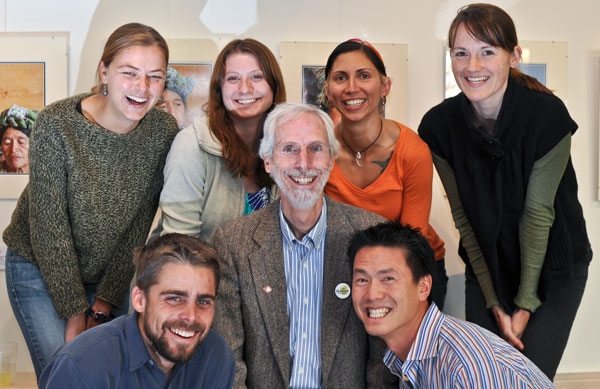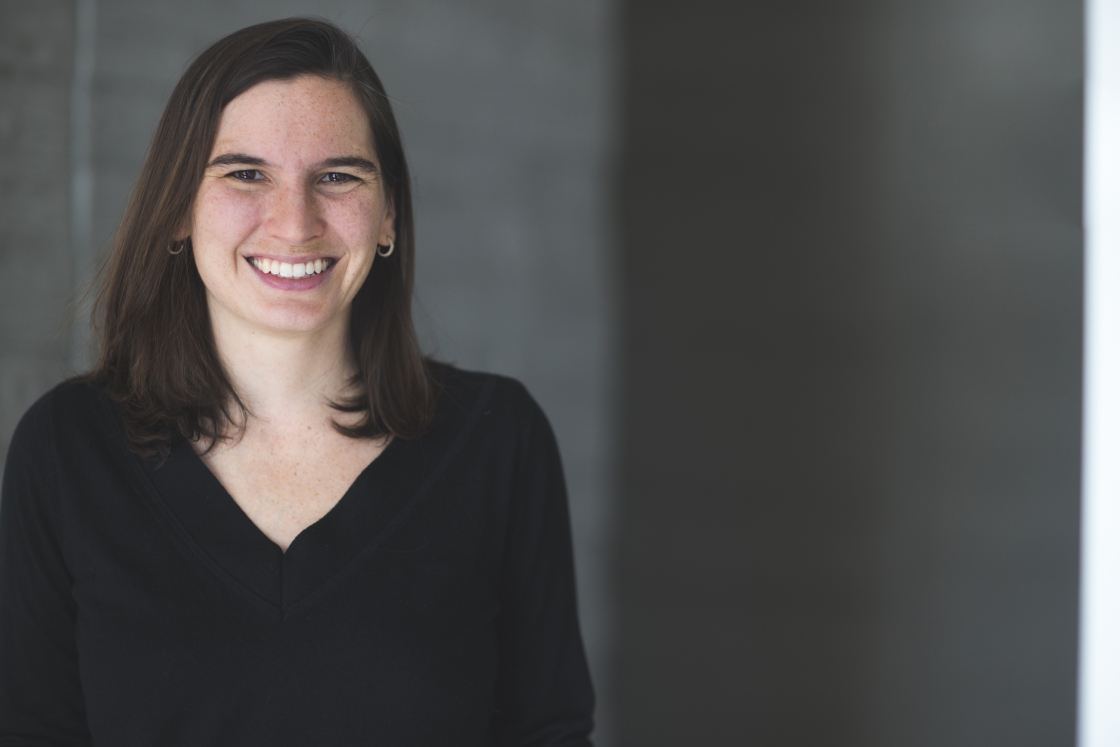On the front lines of climate change, Greenland harbors a unique convergence of indigenous communities, research field stations, and policy debates about the future of the Arctic. It is an ideal location for Dartmouth’s new Polar Environmental Change program, offered through a grant by the National Science Foundation’s Integrative Graduate Education and Research Traineeship (IGERT) program.

Dartmouth’s IGERT is designed to facilitate collaborative research that transcends traditional disciplinary boundaries and considers the human dimensions of climate change.
Ross Virginia, the Myers Family Professor of Environmental Science and director of the Institute of Arctic Studies at Dartmouth, was in Greenland last summer with part of his team developing curriculum for an IGERT field seminar beginning this summer.
Dartmouth’s IGERT, which funds a total of 30 two-year fellowships over five years, requires significant work on top of the work assigned by each student’s home department. Dartmouth IGERTs have to take additional courses in polar science, policy and ethics; participate in seminars and other training opportunities; design research that includes a significant polar focus; and take part in a challenging field seminar in Greenland. IGERT, currently in its first year of programming, has seven Ph.D. students. Next year the number will nearly double, when five or six new fellows join.
The current IGERT fellows will be the first to experience the month-long field seminar in Greenland, where three locations will host the fellows and faculty during the summer of 2010. The first is the Kangerlussuaq International Science Support(KISS) facility, a former US airbase now housing many international projects. Kangerlussuaq is currently the hub of US science going in and out of Greenland, and the location is ideal for the IGERT program because of its close proximity to the Greenland Ice Sheet. Virginia says that KISS’s easy access to the ice sheet will be crucial to the students’ experience in Greenland.
“We really want to bring the students out there and have them learn how to read the landscape,” he said. “That becomes the basis for trying to understand how the system’s going to respond to the rapid climate change we’re seeing now.”
After gathering samples from the field in Kangerlussuaq, the team will travel to Summit Station, on the Greenland Ice Sheet, and then Nuuk, Greenland’s capital and largest city at 14,000 people. There, the students will study the social and political ramifications of climate change. The goal is to encourage student interaction with the local residents and to explore the impact these environmental changes have on native populations.
“We’re really excited about immersing ourselves in the Greenlandic culture and really connecting with the people,” Gifford Wong, a current IGERT fellow, said. Wong is a Ph.D. candidate in earth sciences.
Simone Whitecloud, an IGERT fellow who travelled to Greenland with Virginia last summer, is also looking forward to forging a human connection. Whitecloud, a Ph.D. student in ecology and evolutionary biology, kept a blog during last summer’s trip with fellow IGERT earth sciences fellow Laura Levy.
“My one frustration during the trip was that it’s very easy to go there and be isolated from the Greenlandic culture,” she said. “I’m really excited for the summer when we get to go to Nuuk and be immersed.”
In Nuuk, the students will be working closely with members of the Inuit Circumpolar Council (ICC) to learn how their activities have been instrumental in promoting political, economic and social development in Greenland and how outsiders might help support these efforts. The fellows will also work with students from the University of Greenland, collaborating on how to effectively communicate scientific information on climate change. IGERT students will be taking a course during spring term at Dartmouth to help prepare them.
“The course will cover the ways in which we perceive, quantify, and experience change. The question we want to answer is how can traditional knowledge and western science work together to create a more holistic understanding of climate change?” Virginia said.
Different disciplines within the Dartmouth community have all been collaborating on the IGERT project. Students and faculty from the ecology, earth sciences, and engineering are all involved in the IGERT.
“Dartmouth’s intimate environment is an asset, and the IGERT is a way to interact with more faculty than you’d have in one department here,” IGERT fellow Lauren Culler said. Culler is a PhD candidate in ecology.
“The polar sciences are inherently interdisciplinary,” Virginia said, “and it’s making each science better by collaborating. It really is a big step for Dartmouth to challenge students to really do something together. IGERT fellows are expected to developing a solid grounding in their field of research while also understanding the impact science can have on influencing policy.
The IGERT students are very excited about the upcoming summer field study and research in Greenland and beyond.
“I absolutely love being in the IGERT,” Whitecloud said. “It’s sort of created an instant family network of support that I hadn’t even known I was missing before. I like the interaction of minds that work in different ways.”
